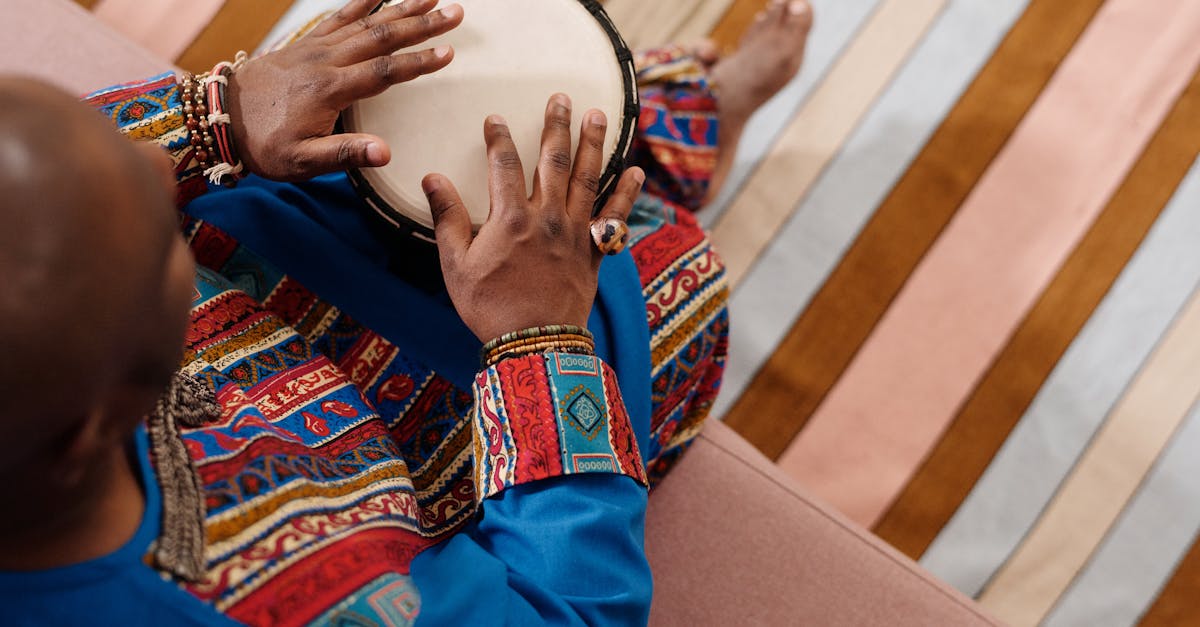Auditory Passport A Journey Through Global Harmonies
Introduction
Embark on an exhilarating adventure through soundscapes crafted by cultures worldwide. Auditory Passport is a journey into the heart of global harmonies, where music becomes a universal language transcending borders. From Africa's rhythmic beats to Asia’s soulful melodies, every corner of the globe has a unique auditory signature. Music is a manifestation of cultural identity, offering insights into history, beliefs, and societal values. Understanding the world's musical diversity enriches our appreciation for the art form. Join us as we explore the fascinating realms of music from diverse nations, peeling back layers to reveal the stories captured within their tunes.
Advertisement
African Rhythms and Beats
Africa boasts a rich tapestry of musical traditions rooted in historical and social context. Percussion instruments such as drums, shakers, and xylophones form the backbone of African music, driving its characteristic rhythm-centric sound. Singing and dancing often accompany performances, with lyrics touching on themes of nature, community, and spirituality. Nations like Nigeria gift us with Afrobeat, a genre blending traditional African music with jazz and funk. Meanwhile, South Africa's vibrant Zulu and Xhosa harmonies offer a unique sonic experience. By engaging with African music, listeners uncover stories of resilience, strength, and cultural pride that resonate universally.
Advertisement
The Resonance of Asia
Asia’s diverse musical landscape spans from the Middle Eastern maqams to East Asia's pentatonic scales. Indian classical music, distinguished by its raga system, immerses listeners in intricate melodic patterns that evoke specific emotions. Japan's serene Koto and Shakuhachi music introduce the concept of 'Ma,' emphasizing pauses and silence in compositions. Meanwhile, China’s diverse traditional music includes the soul-stirring melodies of the Guqin. Each nation within Asia contributes its distinct musical essence, drawing from centuries-old traditions that reflect profound philosophical and spiritual beliefs.
Advertisement
European Musical Mastery
Europe is celebrated for its classical music heritage, which laid the foundation for countless genres today. From the Baroque period's intricate compositions to the emotive Romantic era works, European classical music emphasizes harmony and innovation. Folk traditions also remain strong, with countries like Ireland and Spain offering Celtic tunes and Flamenco, respectively. Eastern Europe's Balkans produce stirring music characterized by unusual time signatures and vocal harmonies. Europe’s musical prowess is a testament to its historical evolution, shaped by wars, revolutions, and cultural exchange.
Advertisement
The Heartbeat of the Americas
The Americas are synonymous with diversity, richly colored by indigenous, African, and European influences. In North America, jazz and blues trace back to African American communities, influencing the birth of rock and roll. Meanwhile, Latin America bursts with life through the infectious rhythms of salsa, samba, and tango. Regional dances, like Mexico's Mariachi or Brazil’s Bossa Nova, celebrate life with spirited performances. The fusion of old and new, traditional and contemporary, characterizes American music, highlighting its adaptive nature amidst cultural melting pots.
Advertisement
Oceanic Echoes
Oceania offers a spectrum of sounds that speak to its rich Maori and Indigenous Australian heritages. Instruments like the didgeridoo create mesmerizing drone sounds, integral to Aboriginal ceremonial music. Polynesian and Melanesian islands possess unique traditions, often involving intricate chants and dances that narrate tales of nature and ancestry. Oceania’s music, deeply connected to its environment, encapsulates a reverence for land, sea, and sky, celebrating the intimate relationship between people and nature.
Advertisement
Evolving Fusion and Global Influence
As we navigate the 21st century, global interactions have encouraged music fusion, blending diverse harmonies into cohesive experiences. World music festivals exemplify these collaborations, where artists from varying genres engage in cultural exchange. Innovations in technology have further shrunk the gap between nations, making global sounds readily accessible. This fusion is key to evolving genres, letting them adapt while preserving core essences. Such intermingling demonstrates music's powerful ability to unite, fostering appreciation and respect for cultural diversity.
Advertisement
Challenges in a Globalized World
Global music fusion also faces challenges, such as the potential watering down of authentic traditions. Cultural appropriation remains a sensitive topic, as some argue that borrowing without understanding leads to superficial representations. It is crucial for artists and audiences to pursue genuine appreciation, delving beyond the surface to embrace and honor the origins of each musical influence. Ensuring balance in musical exchange aids in preserving cultural integrity, supporting meaningful, respectful fusion.
Advertisement
The Future of Global Harmonies
The future of global harmonies promises exciting developments as technology continues to redefine music production and consumption. Virtual reality concerts and AI-generated compositions are reshaping the way we experience sound. New generations, empowered with digital tools, are poised to redefine musical boundaries, further enriching the global tapestry. In this dynamic landscape, fostering cultural education becomes essential, transforming listeners not just as passive consumers but active participants in celebrating diversity.
Advertisement
Conclusion
Auditory Passport invites a world of fascinating melodies, vibrant rhythms, and cultural stories. From traditional drums to digital beats, each note is an invitation to explore the planet's rich harmonic diversity. While globalization poses challenges, it also enriches our musical experiences, emphasizing the importance of genuine cultural exchanges. As we venture further into the fusion of sounds, respect for musical roots will become ever more crucial. The symphony of global harmonies inspires unity, bridging divides and crafting a connected, harmonious future.
Advertisement

